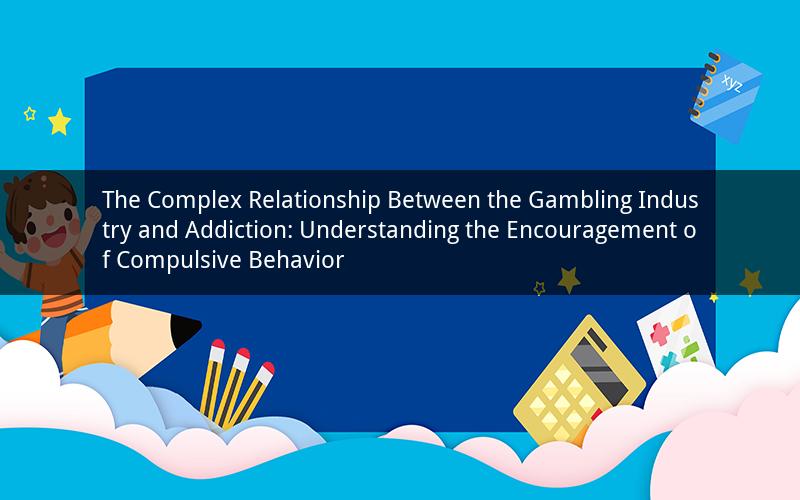
The gambling industry, a multifaceted sector that spans casinos, sports betting, lottery games, and online platforms, has been a subject of intense debate and scrutiny. One of the most pressing questions revolves around whether the industry encourages addiction. This article delves into the intricacies of this issue, examining the various factors that contribute to the potential for gambling addiction and the industry's role in fostering such behavior.
1. What is gambling addiction, and how does it manifest?
Gambling addiction, also known as problem gambling or compulsive gambling, is characterized by an inability to control or stop gambling, despite negative consequences. It can manifest in various ways, such as spending excessive amounts of time and money on gambling activities, neglecting personal, professional, and social responsibilities, and experiencing withdrawal symptoms when unable to gamble.
2. What factors contribute to the development of gambling addiction?
Several factors contribute to the development of gambling addiction, including genetic predisposition, environmental influences, and personal vulnerabilities. Some individuals may be more susceptible to addiction due to genetic factors, while others may be influenced by the availability of gambling opportunities, marketing strategies, and societal attitudes towards gambling.
3. How does the gambling industry contribute to the potential for addiction?
The gambling industry plays a significant role in contributing to the potential for addiction. Some of the key factors include:
- Availability: The proliferation of gambling venues and online platforms has increased the accessibility of gambling, making it easier for individuals to engage in risky behavior.
- Marketing: The gambling industry employs sophisticated marketing strategies to attract new customers and retain existing ones. These strategies often exploit psychological vulnerabilities and encourage excessive gambling.
- Design features: Some gambling games are designed to be addictive, with elements such as unpredictable outcomes, rapid play, and social interaction that keep players engaged for extended periods.
- Rewards: Many gambling venues and online platforms offer rewards and incentives to encourage continued play, which can reinforce addictive behavior.
4. What measures can be taken to mitigate the potential for addiction?
Several measures can be taken to mitigate the potential for addiction, both at the individual and industry levels. These include:
- Responsible gambling policies: Casinos, sports betting companies, and online platforms can implement responsible gambling policies, such as setting deposit limits, providing self-exclusion options, and promoting awareness of the risks associated with gambling.
- Education and support: Individuals can be educated about the risks of gambling addiction and provided with support services, such as counseling and support groups.
- Regulatory oversight: Governments can implement and enforce regulations to ensure that the gambling industry operates responsibly and takes steps to prevent addiction.
5. Can the gambling industry be held accountable for encouraging addiction?
The question of whether the gambling industry can be held accountable for encouraging addiction is complex. While the industry may contribute to the potential for addiction, it is essential to recognize that not all individuals who engage in gambling will develop an addiction. Additionally, the industry has taken steps to mitigate the risks associated with gambling addiction, such as implementing responsible gambling policies and providing support services.
In conclusion, the relationship between the gambling industry and addiction is a multifaceted issue that requires careful consideration. While the industry may contribute to the potential for addiction, there are also measures that can be taken to mitigate these risks. As society continues to grapple with the complexities of gambling addiction, it is crucial to balance the industry's economic contributions with the well-being of individuals and communities.